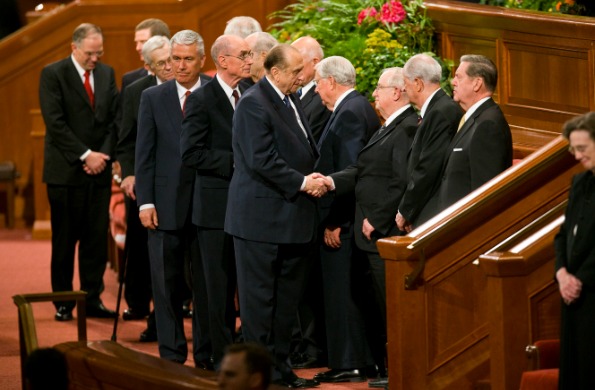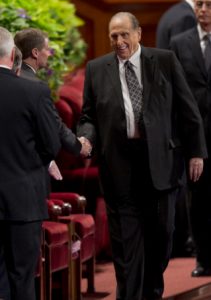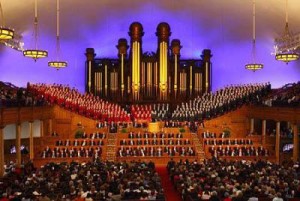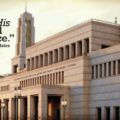With the passing of our beloved Robert D Hales this past fall, a vacancy was created in the Quorum of Twelve Apostles.
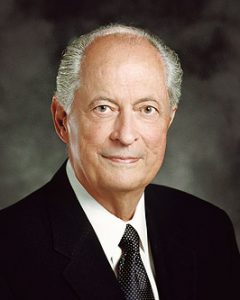 Latter-day Saints began their wild speculation as to who the new apostle would be . . . and it is a favorite pastime. Names are suggested at the dinner table, on email lists, at the workplace . . . even in the park where parents are keeping a close watch on their playing children.
Latter-day Saints began their wild speculation as to who the new apostle would be . . . and it is a favorite pastime. Names are suggested at the dinner table, on email lists, at the workplace . . . even in the park where parents are keeping a close watch on their playing children.
Who will the new apostle be? But it is not up to the general membership of the church, the Quorum of the Twelve Apostles or even the prophet. A new apostle is called by the Lord and only the Lord.
From Selecting an Apostle we read:
Members of the Quorum of the Twelve serve for their lifetimes, unless removed from their position for iniquity or through resignation. When there are fewer than twelve men in the quorum, it is necessary for a new apostle to be chosen.
New apostles for the Quorum of the Twelve are selected by the First Presidency, by revelation. The position is not open to lobbying or application, although several candidates may be considered. The selection is made by applying the same general principles as were followed by the ancient apostles in New Testament times, that is, the First President and the remaining members of the Twelve meet and prayfully consider new candidates. They voice their opinions on who it should be and the finally selection can only be unanimous. (See Acts 1:15-26.)
Thomas S. Monson at General Conference
Once a decision is reached, the individual’s name is submitted to the remaining members of the Quorum of the Twelve for their approval. The individual is then interviewed by the President of the Church and a calling is issued. The name is announced in a conference of the Church for the sustaining vote of the membership as a whole. Such vote does not constitute an election in the political sense of the word; it indicates that the calling is approved by the membership and that the membership accepts the new apostle as such.
The newly sustained individual is then ordained as an apostle by the First Presidency and Quorum of the Twelve, who bestow upon him the keys (authority) of the holy apostleship. These keys are the same as were given by Christ to the ancient apostles and restored to Joseph Smith and Oliver Cowdery in modern times by Peter, James, and John. The keys given to the new apostle include the authority to preach the gospel in all the world and to seal ordinances on earth that will be sealed eternally. (See Matthew 16:19, 28:19-20).
Apostles are special witnesses of the name of Jesus Christ in all the world; they possess a knowledge, by revelation, of the literal resurrection of Christ and a knowledge that he directs the affairs of His Church.
Since the church was restored and formed on April 6, 1830, 95 men have been called, sustained and have served as apostles of our Lord, Jesus Christ.
From that same article www.mormonwiki.com, we find Joseph Smith’s definition of an apostle.
LDS General Conference
They are the Twelve Apostles, who are called to the office of the Traveling High Council, who are to preside over the churches of the Saints, among the Gentiles, where there is a presidency established; and they are to travel and preach among the Gentiles, until the Lord shall command them to go to the Jews.
They are to hold the keys of this ministry, to unlock the door of the Kingdom of heaven unto all nations, and to preach the Gospel to every creature. This is the power, authority, and virtue of their apostleship. (Joseph Smith, History of The Church of Jesus Christ of Latter-day Saints, 7 vols. 2:200)
And so, last Saturday in General Conference, October 6, 2007, a new apostle was called, Quentin L. Cook.
Now here is what sets The Church of Jesus Christ of Latter-day Saints apart from the rest of the world. We believe in personal revelation.
Revelation is communication from God to His children. This guidance comes through various channels according to the needs and circumstances of individuals, families, and the Church as a whole. When the Lord reveals His will to the Church, He speaks through His prophet. Prophets are the only people who can receive revelation for the Church, but they are not the only people who can receive revelation. According to our faithfulness, we can receive revelation to help us with our specific personal needs, responsibilities, and questions and to help us strengthen our testimony.
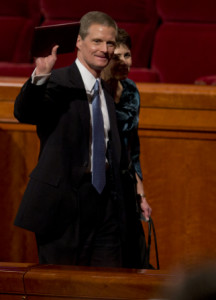 The scriptures are filled with prophet after prophet after apostle encouraging the reader to learn to communicate with heaven. (1 Corinthians 2:9-14, Revelations 19:10, Alma 5:43-48, Alma 17:2-3, D&C 76:5-10, D&C 121:26-33)
The scriptures are filled with prophet after prophet after apostle encouraging the reader to learn to communicate with heaven. (1 Corinthians 2:9-14, Revelations 19:10, Alma 5:43-48, Alma 17:2-3, D&C 76:5-10, D&C 121:26-33)
We are expected to pray to our Father in Heaven and ask for confirmation of the calling of Henry B. Eyring to the First Presidency and of Quentin L. Cook to the Quorum of the Twelve. It is a wonderful and enlightening privilege given unto the followers of Jesus Christ. And so I prayed, and I asked, and as these men spoke in the Sunday Morning session of General Conference, it was testified unto me that the Lord had indeed called these men to serve in these roles and my spirit sighed. Once again confirmation had been given to me when I petitioned the Father and I was, and am, so grateful for this continual reminder of the love our Father in Heaven has for each of us. We ask He will answer.
Interestingly, all of Heavenly Father’s children have this right. We’ll discuss more of personal revelation under the Learning About the Church section of this site. In the meantime, I’d like you to stop, ponder and pray and exercise this tremendous privilege you hold. When was the last time you petitioned the Father?

